|
Today the students were learning the verbs VOULOIR and POUVOIR we played the game SIX! This is an excellent way for the students to practise the verb over and over again. It is a super simple game to play and here are the instructions and photos:
0 Comments
As you can see from my unit poster above, the students in my French Phase 1 class are considering how different messages can be structured according to their purpose. The imperative commands are integral to this unit as they are frequently used in promotional materials such as leaflets, brochures and web pages. Instead of presenting and explaining the imperative vous form to the students, I wanted the students to identify the patterns of it's conjugation for themselves. I had already used this scavenger hunt from TPT with my Spanish class, and it was such a success that I was excited to repeat this learning experience with my French class. I made this very simple document (below) and posted each page randomly around my classroom walls. The students were armed with clipboards and a handout, and each student was posted in front of a different paper around the room. The students start by noting down the infinitive verb at the bottom of the first paper. They then have to search for the paper which contains the correct conjugation of that verb in the imperative form. On that paper, they once again write down the infinitive verb before searching for its conjugation, and so it continues until they have found all 15 verbs. This activity really does make the students pay attention to detail as some conjugations, like voyez and visitez are similar, and they have to think back to previous conjugations learnt to identify the link between être and soyez (many students referred to the irregular verb conjugations on my bulletin board display to identify which one might be connected with S) . Afterwards, with all the infinitives and their conjugations written down, the students identified the pattern of the conjugations and which ones were regular and which ones were irregular. With the scavenger hunt completed, they then looked at a poster about the old town in Lyon and a web page advertisement of the Perigord. They identified the imperative forms on these two documents and were able to discuss, ponder and inquire into its purpose and usage. Once we had identified that the imperative is used as a command, the students translated the meanings of the imperative verbs on their hand out and did some practice with them matching sentence halves and translating sentences.
I love scavenger hunts for inquiry based grammar learning! Google Forms are my new best friend! I absolutely love them for making worksheets and quizzes because they give the students immediate feedback. Also, you can give the students a multiple choice option if you think that the quiz will be challenging for them, or ask them to simply write a short correct answer. Take a look at these forms to see how I have used them to quiz the students on subject pronouns and verbs as well as adjective agreement.
My French Phase 1 students are embarking on their first unit of inquiry about Identity and Relationships. They have already learned how to say the various countries that they come from and now they are learning to talk about nationality. I have them complete the table below so that they can identify the adjective patterns themselves. Once completed, we discuss the silent <<s>> as the last letter of the word and the general rule of reading to the last vowel, and they work together in pairs to decipher the pronunciation. I hope you find this document useful in your class I think that is extremely important to have a warm and welcoming classroom environment that supports student learning. Here are some pictures of my French grammar display in my classroom.
|
Juliet OrchardI have been teaching French and Spanish for 13 years. I qualified and started teaching in the UK, and I currently work at Shanghai Community International School, China. I have experience teaching GCSEs and IB DP and MYP. Find out more about me within these blog pages or below at Linked In. Archives
April 2018
Categories |
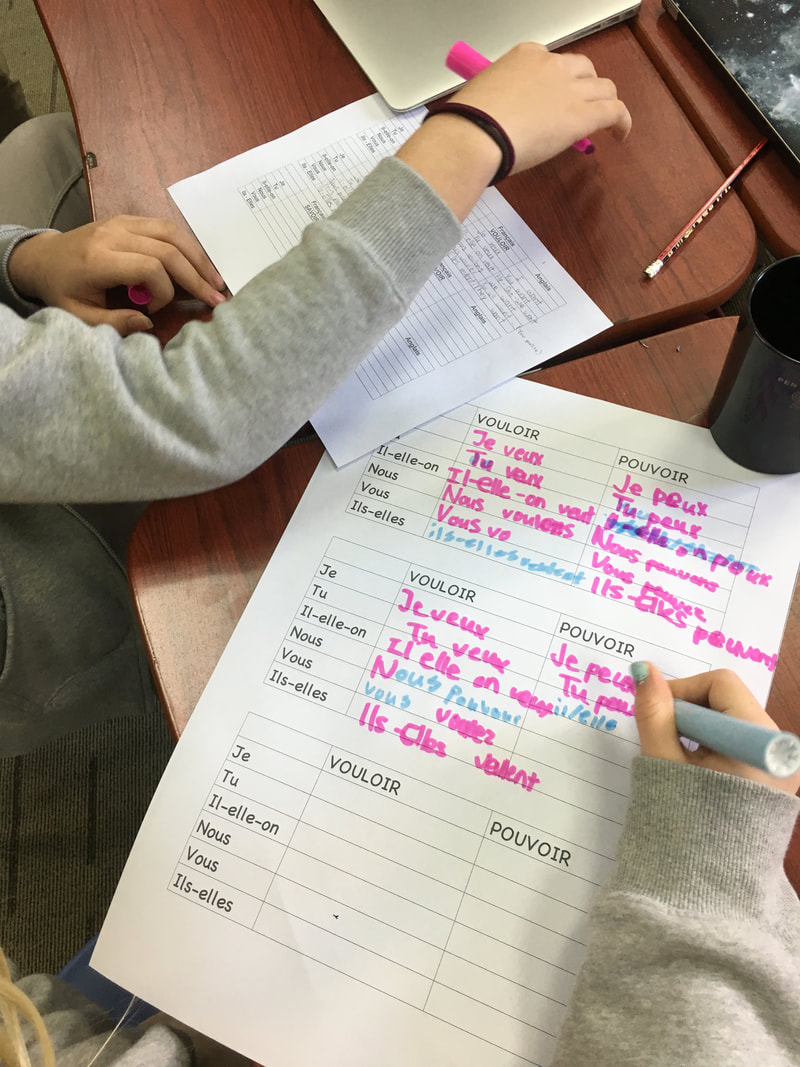
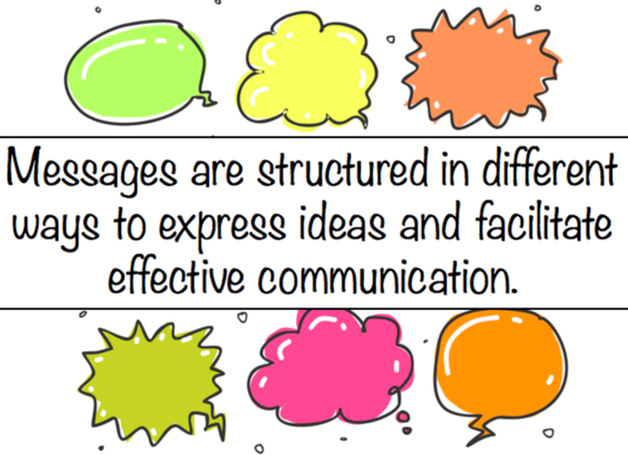
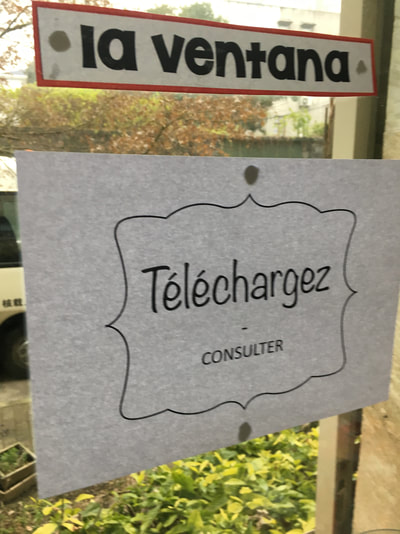
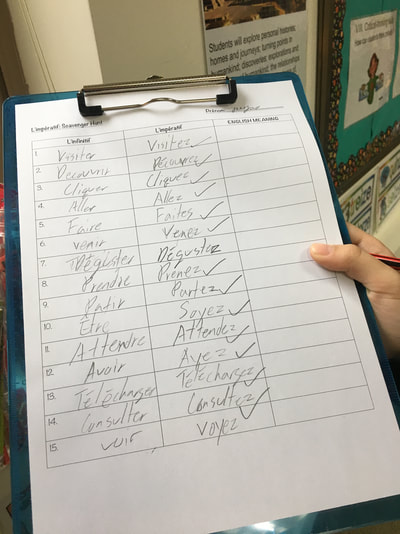
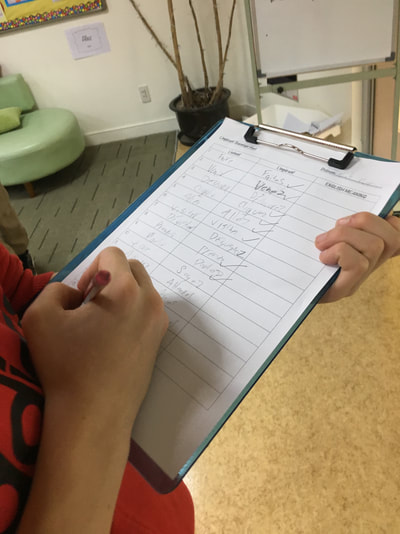
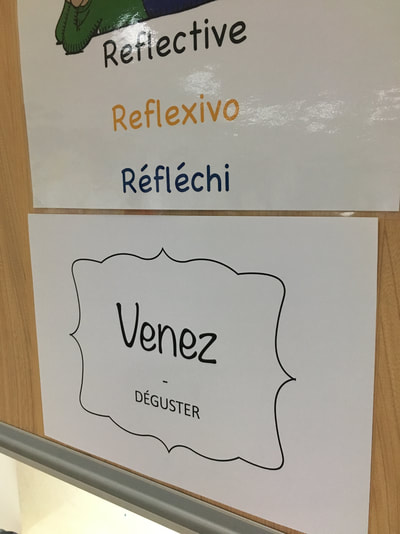
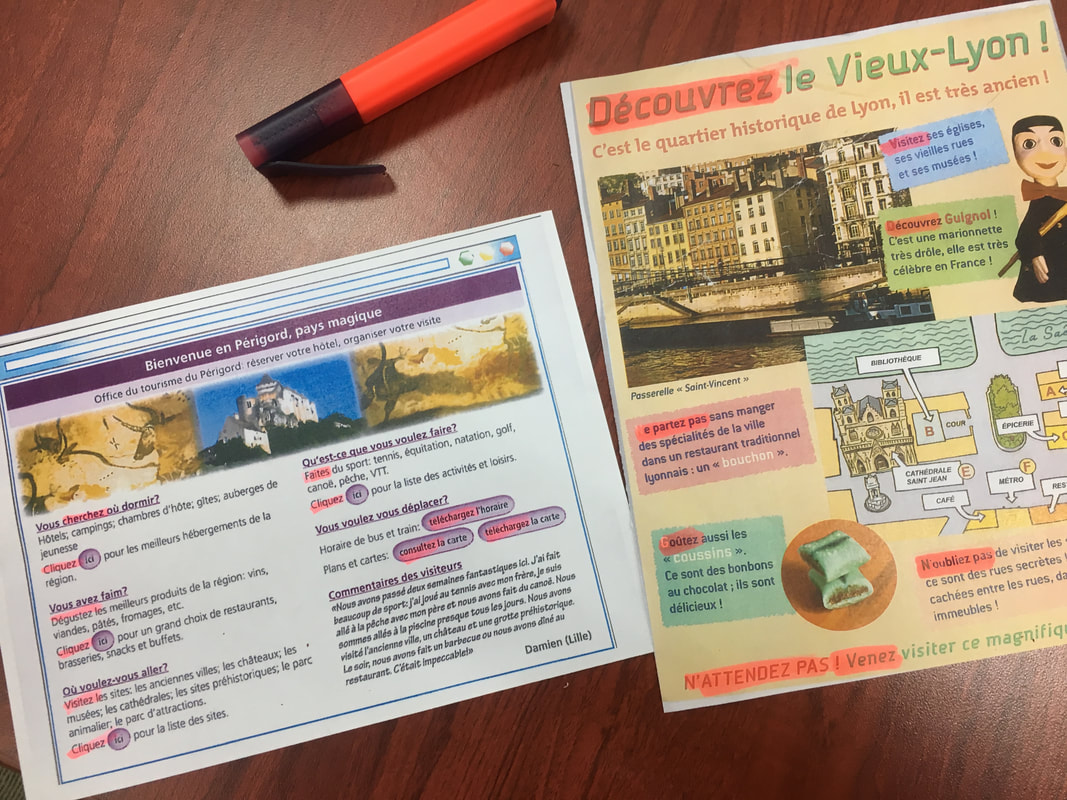
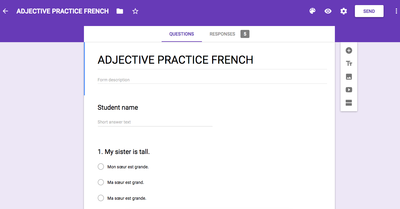
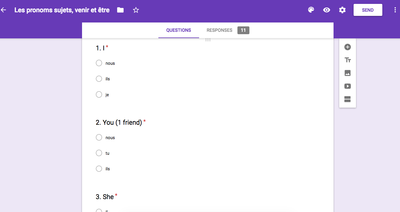
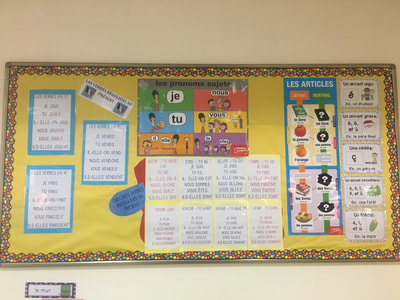
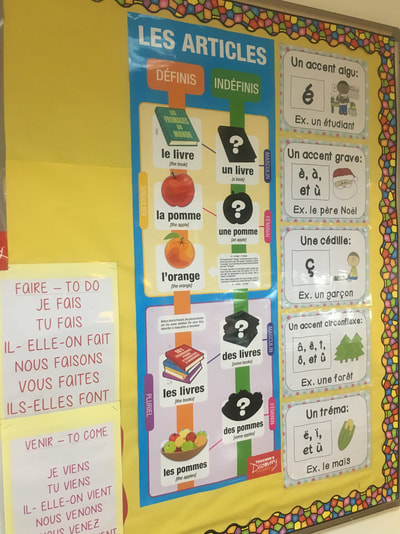
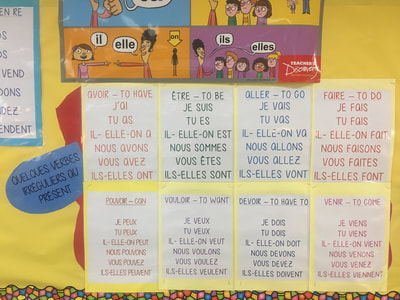
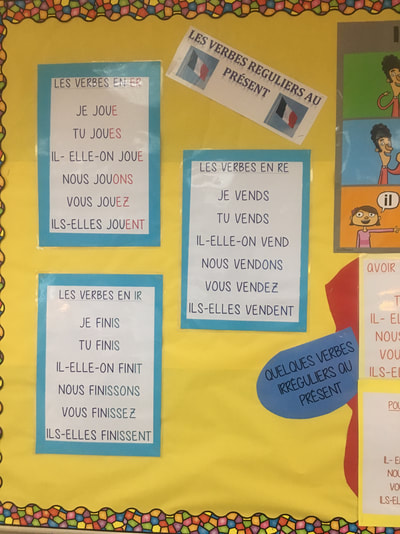
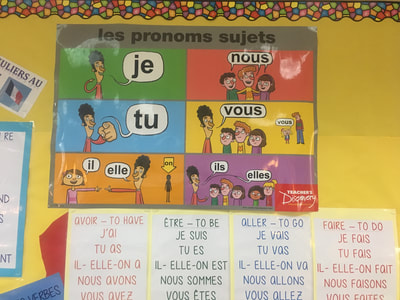

 RSS Feed
RSS Feed